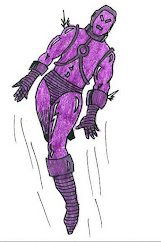The operetta The Mikado by Gilbert and Sullivan premiered 14 March 1885 at the Savoy Theatre, London, with the D'Oyly Carte Opera Company. 10 things you might not know:
- The full title is The Mikado; or, The Town of Titipu.
- The title refers to The Mikado of Japan, the traditional title for the Japanese emperor. The word translates literally as “gate”, a reference to the Imperial Palace gate in Kyoto.
- The operetta might never have existed but for a bit of dodgy DIY. Gilbert said that he was inspired to write it when a Japanese sword fell off the wall in his study.
- His inspiration came at a time when he and Sullivan had fallen out because Sir Arthur Sullivan wanted to pursue 'serious' music. However, he liked the idea of the Mikado enough to work with his former collaborator again.
- The Mikado had the longest original run of any of Gilbert and Sullivan’s operettas, with 167 performances. It quickly caught on abroad as well. By the end of 1885, it was estimated that, in Europe and America, at least 150 companies were producing it.
- The Mikado was intended to satirise the British. Setting it in Japan made it easier for the British to laugh at themselves! The names of the characters are not authentic Japanese names. They’re actually examples of Victorian baby talk. Yum-Yum, Pooh-Bah and Pish-Tush, for example, and the hero's name, Nanki-Poo, is Victorian baby-talk for a handkerchief. Pooh-Bah is a name that has entered the English language as a word for a pompous or self-important person who has limited authority in spite of their many and/or impressive titles. It has been suggested that the naming of Winnie the Pooh might have been inspired by the character.
- The plot (possible spoilers): Nanki Poo is a prince, the son of the Mikado. He is in love with Yum Yum, a village girl, and disguises himself as a wandering minstrel in order to be near her. An older woman named Katisha is in love with Nanki Poo and is determined to marry him. It all turns out well in the end when Katisha falls for KoKo, the town executioner, leaving Nanki Poo free to get it together with Yum Yum.
- It's become a theatrical tradition for Ko-Ko's famous 'little list' aria to change at every performance, and include references to modern day politicians, pop stars, and the big news stories of the day.
- The Mikado has given us the expressions "A short, sharp shock", a favourite of politicians and used on Pink Floyd’s Dark Side of the Moon album. "Let the punishment fit the crime" is another often used phrase from the show. Quotes from The Mikado were used in letters to the police by the Zodiac Killer, who murdered at least five people in the San Francisco Bay area in 1968 and 1969.
- The title character has one solo song, which was almost cut. Gilbert and Sullivan were going to take it out, but the cast had already learned it and liked it. After the dress rehearsal members of the company begged G and S to leave it in.
Character Birthday
Gadgeteer, a power armour user who is a member of Combat Team Alpha. His suit allows him to repulse opponents and freeze them in ice. An electrical engineer by profession, after being made redundant, spent his time in his garage creating the power armour, much to his wife’s disgust as she thought he should be looking for another job, not “tinkering”. It paid off when he was taken on by Team Alpha, although in the early days the teams were kept under wraps and he wasn’t allowed to tell anyone, even his wife, about what he was doing. Hence she was convinced for some time that he was having an affair. The Power armour wearers from the various teams often team up to help the emergency services with serious accidents, disasters and criminal activity.


No comments:
Post a Comment